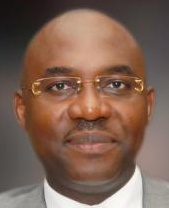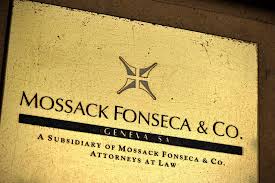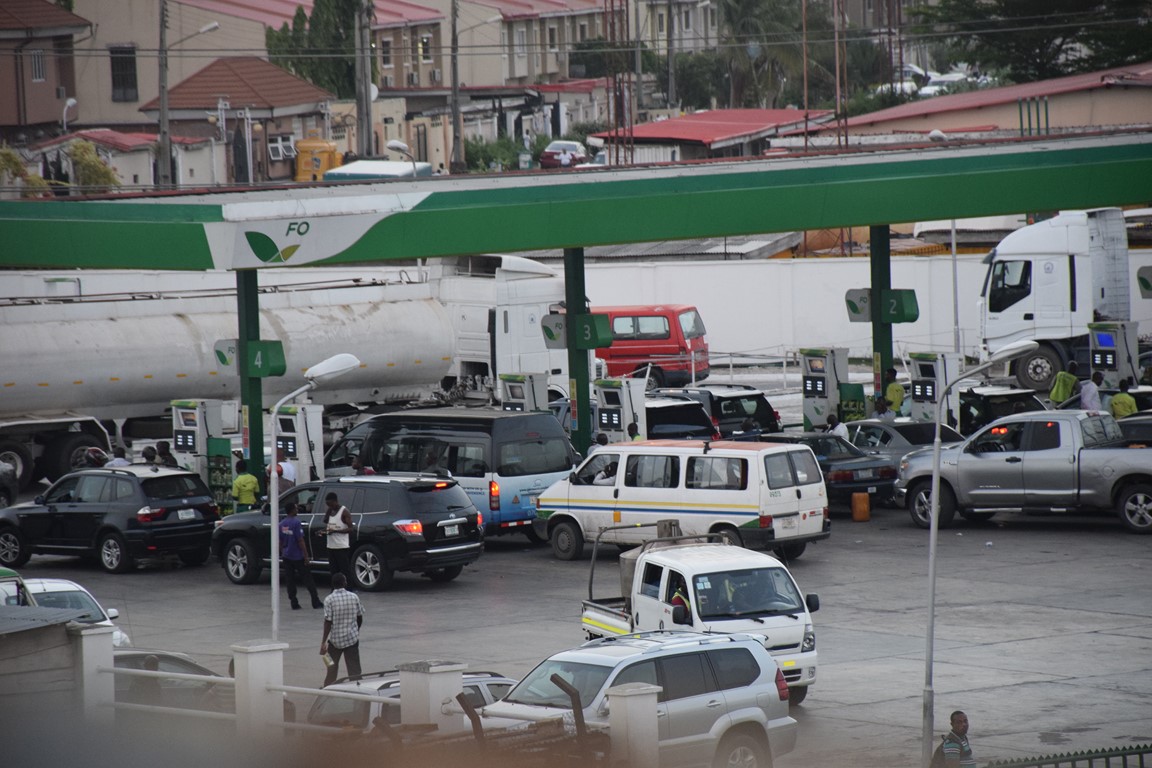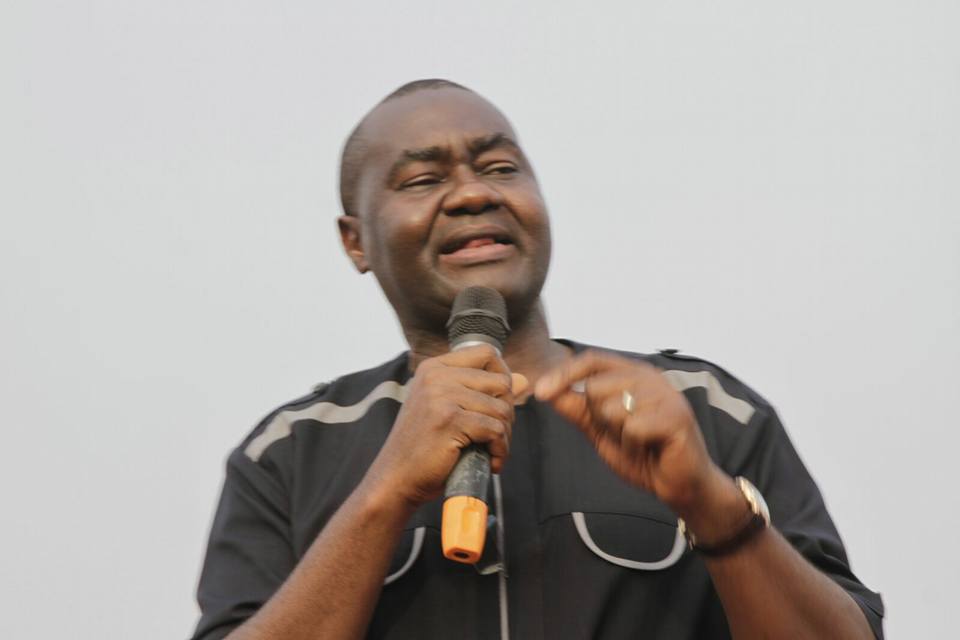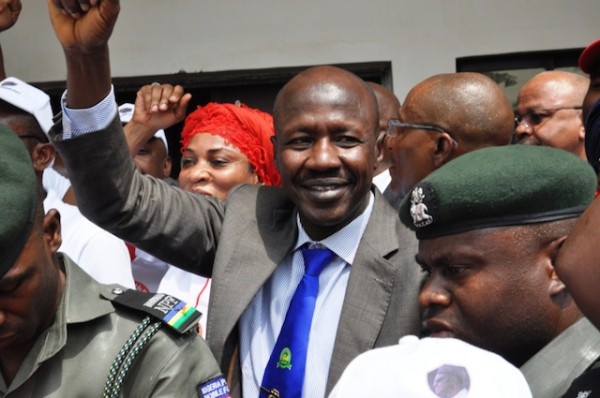Beside its entertainment value, another use the unfolding Panama Papers scandal evidently serves is provide us a barometer to gauge the shame index across the universe. Shame is no sign of weakness, mind you. When evinced timeously, it brings out honour. Shame speaks to an inner strength to recoil in admission that violence had been done to the normative value that defines society; hence the penitent cessation of that course of action.
What is despicable, let it be noted, is shamelessness. To become dishonorable is to lose the sense of shame. The freer a society is, the more leaders would then appear predisposed to show shame when caught pants down.
But in a closed society, they live in denial, thus forfeiting the chance of self-redemption.
The nobility in shame would be demonstrated Tuesday when Iceland’s Prime Minister, Sigmundur Gunnlaugsson, resigned once leaks linked him to the infamy of Mossack Fonseca, a Panama-based law firm specializing in helping world celebrities and politically-exposed persons to either launder fortunes or shield investments from tax. The PM and his wife owned an offshore company registered by the Panamanian firm to conceal million dollars worth of family assets. Their shell company, Wintris, had significant investments in the bonds of three major Icelandic banks that collapsed during the 2008 financial crisis.
Long before an angry mob of Icelanders began to occupy the parliament’s gate, Gunnlaugsson did the honorable thing in the circumstance by throwing in the towel.
Advertisement
Elsewhere in London, Prime Minister David Cameron practically turned himself in for thorough body search at the British parliament Tuesday. He had to reveal personal secrets to prove he had nothing to do with his dad’s shell company exposed by the Panama Papers.
Addressing a charged chamber, he listed all his earthly possessions to include “My salary, of course the house we lived in before moving to 10 Downing Street (which now yields additional income as rent) and savings I’ve from which I earn interests.”
Though the details of their own dealing are no more graphic than those of the Icelandic and British leaders, Russian and Chinese authorities have expectedly been in denial. The Panama Papers listed Russian President Vladimir Putin’s friends as operating dozens of companies through which billions of dollars had been laundered. Moscow’s response? It conveniently dismissed the reports as another show of “Putin-phobia”! No further comment.
In Beijing, official response to reports linking Chinese leader Xi Jinping’s brother-in-law to the malfeasance was in fact brusque. Little was done to hide official hand in open censorship. Anywhere Panama Papers was as much as whispered or mentioned since Monday – on foreign television channels viewed locally on cable – grainy blackout quickly followed. Ditto the social media.
Back home, the drama is simply comical. On his own, already embattled senate president Bukola Saraki put up a robust defense by denying responsibility for the shell company linked to his wife. He insists that his wife, Toyin, comes from a wealthy family with independent and verifiable source of income.
Advertisement
His predecessor, David Mark, simply resorted to the familiar tactic of drawing red herring across the way. He chose to politicize the issue. To the ordinarily earth-shaking allegations of engaging Fonseca to register record eight firms for the sole purpose of money-laundering, all Nigeria’s longest-serving senator could say through his aide is “I’m not sure about the accuracy of your claims. We know where that may be coming from. It is political.”
Perhaps to be on a safe side, Mark even had to allegedly involve a member of his harem in these offshore ventures. They bear assorted romantic-sounding names like Marlin, Medley and Quetta. So frenetic, it would seem, were their activities that a special secret code had to be invented to differentiate a particularly bulky account at the Swiss branch of HSBC entered in his wife’s name.
Worse is the suggestion that part of these illicit transactions actually transpired while Mark presided over the National Assembly as president of the senate, the elite law-making chamber in the land.
But again, in the face of the proverbial smoking gun, all Mark says is “It’s political”. To say nothing of Nigeria’s existing political folklore which effusively lists the Benue Big Man among lucky soldiers who left the Nigerian Army with bulging pockets as even though they were not known to have inherited any family wealth nor earned other known income outside their official salaries.
Now, to find where Iceland and Nigeria stand on the global shame index, simply contrast Gunnlaugsson’s graceful bow with Mark’s infantile subterfuge.
Advertisement
Overall, the exposition of this humongous infamy should be recognized as a monument to a transnational activist vigilante committed to common good. Not since Wikileak(s) have we witnessed this sort of sweeping meltdown among the rich and the powerful. The tidal gale swept a whopping 11 million documents into the open. The consortium of journalists/media agencies (including our own wave-making Premium Times) shared the intelligence across the continents. Fonseca’s rump was thus exposed. Ever since, all its hordes of nocturnal clients no longer sleep at night.
Beyond the cult of the high and the mighty clinically unmasked, it is a mark of shamelessness on her own part that Panamanian nation will still be featuring in narrative of this sordid kind at this point. Decades ago, the Latin American country served the global underworld well as the poster-boy of rogue states. Its then military strongman, Manuel Noriega, was fingered as former drug-pusher. As head of Panama’s army, he secretly doubled as CIA informant in the 70s. The Panama Canal was of strategic and economic importance to the U.S. as it straddles the two great oceans on the narrow isthmus linking the Americas. That was all that mattered to Washington then. So, Noriega would enjoy protection from United States which looked the other way while his illicit cargoes cross-crossed the Atlantic and Pacific oceans.
Later as commander-in-chief in the 1980s, Noriega was accused of providing cover for Mexican drug cartels to launder their loot. Having outlived his usefulness to Uncle Sam, American marines eventually invaded Panama in December 1989. With tail between his legs, the sitting president had to scurry from the Presidential Palace into the Vatican Embassy in Panama City for political asylum. After weeks of being holed there, he eventually surrendered in January 1990 and was immediately whisked off to Miami to face trial that culminated in a twenty-five-year jail term in U.S. prison.
After Noriega, successive Panamanian leaders have tried to launder their country off its shameful history. But they failed to change national laws which entrench corporate and individual financial secrecy. Existing strict confidentiality laws and regulations prescribe severe civil and criminal penalties for violations. The names of corporate shareholders are not required to be publicly registered. The country also has strict banking secrecy laws. Financial institutions are prohibited from giving information about offshore bank accounts or account-holders.
Advertisement
So, for Panama, post-Noriega efforts at self-deodorizing in the past quarter of a century seem to have come to grief with Fonseca’s unravelling last week.
And from Ekiti State came something no less melodramatic few days ago. Though the year is hardly half-spent, Tope Aluko is undoubtedly already leading the nomination list for the “Biggest Fool of Year 2016”. Weeks back, the Ekiti-born political chameleon caused national sensation with a graphic account of how Ekiti guber poll was allegedly rigged in 2014 to usher in Ayo Fayose as governor. Many were persuaded to believe given his status as the “operations director” in the PDP campaign then.
Advertisement
Like the proverbial canary, Aluko went into lurid details of how millions of dollars was trucked into Ekiti before the election to compromise opponents, security agencies and public institutions to dislodge incumbent Governor Kayode Fayemi.
His reason for spilling the beans? Aluko cried betrayal by Fayose and the overarching need to clear his conscience. But just when the nation was still struggling to come to terms with Aluko’s revelations came a rude shock Monday morning. The media was awash with reports and photographs of Aluko and his supposed “estranged godfather” fielding questions at the lobby of a Lagos five-star hotel, crowing to the world that the hatchet had been buried.
Advertisement
But following media backlash, Aluko Tuesday made yet another U-turn. He denied ever making peace with Fayose. He would have us believe he was lured to a “peace meeting” by a serving senator from the state and a former governor.
By still affecting the toga of honour today and expecting to be taken seriously, Aluko is only deceiving himself. Let us be charitable by even accepting his plea that he made a “tactical blunder” by honoring the invitation in the first place. But we didn’t see any gun being put to his head when he said before television cameras at the hotel lobby that the beef with Fayose was instigated by “external forces”. (No prize for guessing “the external forces” Aluko alluded to.) Or would that footage also be a “film trick”? By even admitting he came for a “peace meeting”, Aluko had already given himself away. “Peace meeting” with who? As a supposedly educated man, he ought to know “peace meeting” could only be in the context of the “enemy” being present.
Advertisement
If we make some allowance for Aluko’s obvious creative after-thought, even a kid would not have much difficulty reconstructing the probable sequence of events that led him to shame that Sunday evening in Lagos. Apparently unsatisfied by the “accommodation” offered him outside (by the so-called “external forces”), he sheepishly fell for the bait threw at him by honoring an invitation to meet with Fayose to talk things over. Possibly because of the fabled “stomach infrastructure” (or what he would eat), Aluko sneaked into the hotel under the cover of darkness. He must have calculated everything would remain confidential.
But he obviously under-estimated Fayose’s capacity for cunning. Unknown to Aluko, as the “negotiation” was ongoing, his more street-wise quarry was itching to land the killer blow. A battery of journalists (most likely from the press corps normally embedded in the governor’s entourage) had been tipped off discreetly. When the swivel door finally swung open around midnight, Aluko inevitably walked into the ambush. As television cameras began to roll, a visibly disoriented Aluko could only mutter some nonsense in response to reporters’ questions, looking more like a famished rabbit caught in blinding floodlights.
Trust Fayose, he didn’t allow the golden moment slip without seizing it to further bruise Aluko’s already bloodied nose on the cold asphalt. A wry, triumphant smile on his lips, the Ekiti governor described the greying, avuncular pensioner as “My boy, my son. I’ve forgiven him.”
It would take 24 hours for Aluko to recover from the shock of being set up; hence his Tuesday’s fairy tale. The morale of Aluko’s disgraceful showing: there is no substitute for politics of principle. But what some people will eat will not let them keep their honour.
Edo: Democracy and its enemies
This writer is daily inundated with a deluge of calls and texts from concerned citizens of Edo State expressing either apprehension or anger over what, rightly or wrongly, is perceived as one’s silence – if not aloofness – over the momentous developments in one’s native state.
I thought this clarification has become necessary.
Anyone who has followed The Bottomline for close to two decades might agree that it is not in its character to keep silence in the hour of moral crisis.
With the terminal date of the Oshiomhole administration now within eye-view, the succession battle is getting more intense. The space is getting choked with allegations and counter-allegations of primitive stealing and attempts to shut the democratic space in the ruling party (APC) and the opposition camp (PDP). As the ruling party and one professing change, APC bears the moral burden to lead by example.
But clearly, anti-democratic forces are regrouping. The vultures are encircling the Benin air. Predictably, rats, blackmailers, charlatans, name-droppers and mercenaries are on the loose.
In and out of official circles, so much romanticization and demythologization are ongoing about perceived progress. What progress? Silicon or real? At what costs? Who are the political traders and buyers? Who is the thief? The hypocrite? Who are the prodigals bent on auctioning the family silver?
To be sure, one is as concerned as every true Edo patriot about all the disturbing reports. Left alone, the scorpions and serpents in the basket of treachery will sting each other to death. But it is our moral and historic duty to curb the devil. Enough of the rats fouling up the arena with their acrid body odour.
In the times ahead, we shall be addressing, without fear or favour, the emergent issues in the shared commitment to defend and consolidate democracy and good governance in Edo.
Add a comment
